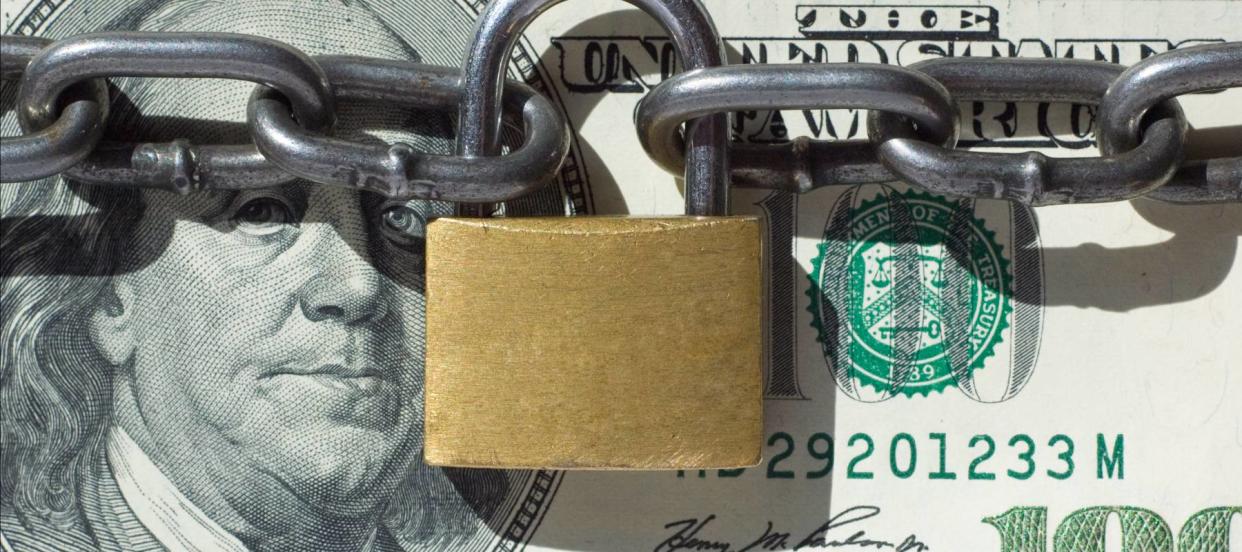Why You Should Consider Putting Some Money in CDs

Looking for a risk-free place to park some savings? You could open a garden-variety savings account, but your interest might be microscopic. A high-interest or high-yield savings account is smarter, but an even better option is a certificate of deposit, or CD.
While the top rates on high-yield savings accounts are currently topping 2%, you can find CDs paying more than 3%. But to earn that kind of interest, you better believe that you're going to have to give the bank something in return.
How CDs work

When you put your money into a CD, you agree to let the bank hold it for a certain period of time.
So, here's the not-so-fine print with CDs: You'll have to agree to let the bank hold on to your money for months or years. That's called the CD's term.
You might choose to stash your money away in six-month, two-year or five-year CDs. Normally, the longer the term, the higher the interest rate.
The potential payout from a long-term CD might be very enticing. Who doesn't want to earn better returns?
But you may have to lock your money away for a loooooooong time.
If some financial emergency comes along and you need to get at your money, tapping your CDs could be costly.
The risks with CDs

You'll face penalties if you try to withdraw money from your CDs too early.
Yeah, we know — we said at the beginning that CDs were risk-free. That's true in one sense: You can put up to $250,000 in CDs and will never lose that money as long as your account is with a bank insured by FDIC or a credit union insured by NCUA.
But if you go back on your bargain with the institution and need to withdraw your money early, you'll face the risk of penalties. The rules vary, but generally you'll have to give up a chunk of your interest.
For example, if you close out a one-year CD too soon, you could say goodbye to six months' worth of interest. If you've had the CD only two months, the penalty would eat into your original deposit amount. Ouch!
The early withdrawal penalty for a five-year CD might be a full year of interest.
Another risk is that interest rates might rise while you've got your money locked up, and your savings will miss out on the opportunity to earn better returns.
Different flavors of CDs, laddering

A CD ladder can help you take advantage of rising interest rates.
All of that describes the workings of a traditional CD. There are other varieties that allow you to make withdrawals more easily ("liquid" CDs) or take advantage of rising interest rates ("bump-up" CDs).
To get some of that flexibility, you might have to accept a lower interest rate when you open the account.
But there is a trick that can allow you to grab onto rising rates using just plain-vanilla, regular CDs. It's called laddering.
You divide your investment across staggered CDs so that every year you have CDs that are maturing.
This way, you can enjoy the higher initial interest rates from longer-term CDs, and also have regular opportunities to invest in new CDs at even better rates.
Want more MoneyWise? Sign up for our newsletter.
Where to get CDs

You can open a CD at your nearest bank or credit union.
Opening a CD is as simple as visiting your nearest bank or credit union, or just going online.
Smaller, local banks or credit unions will give you better rates than the big national institutions, and online-only banks can offer great deals because of their lower expenses.
You may need to fund your CD with a minimum deposit of $500 or $1,000, although some banks have CDs with no minimum opening requirements.
You'll want to comparison-shop for the best rates and find CDs at your sweet spot, with a good yield and a term that's doable. How long will you want to lock away your money?
Putting cash out of reach for years may be tough — unless you've just got it languishing in a low-rate savings account that you never touch. In that case, put that money into CDs pronto!
Join the MoneyWise mailing list. You’ll get the latest financial tips and news, straight to your inbox.

 Yahoo News
Yahoo News 
